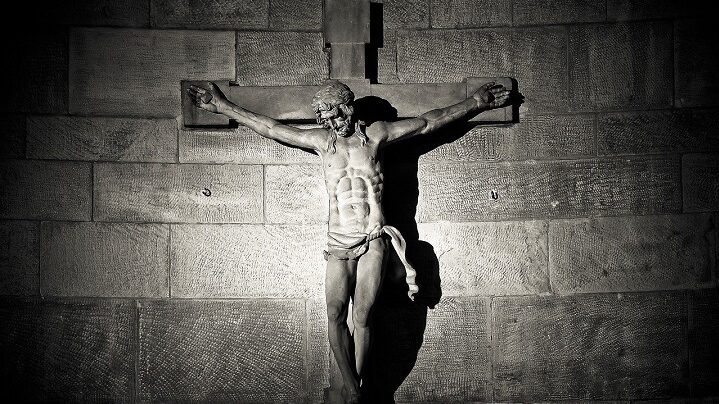Throughout the history of Christianity, the church and Christians have been criticized by members of other religions as well as by atheists and agnostics. Some of the criticism has directly concerned the Christian faith, doctrine, and interpretation of Scripture. The Christian response to such criticism is called Christian apologetics. Several areas of criticism include some claims about Scripture itself, the ethics of biblical interpretations that have historically been used to justify certain attitudes and behaviors, the question of compatibility with science, and some Christian doctrines.
Criticism of the Bible
Although historical churches hold that the authenticity of the books of Scripture is authenticated by the patristic heritage, the authorship of the biblical books is not known with certainty. The Bible has been written by different authors for many centuries, the traditional view in Christianity is from the 15th century B.C. to the 1st century A.D. Many secular scholars are of the opinion that the books of the Old Testament came into existence later. Some modern scholars are of the opinion that most of the books of the Old Testament and all of the Gospels were written by anonymous authors. The texts of the Gospels existed in anonymous form until the beginning of the second century, when authorship was attributed to them.
In the eighteenth century, the validity of the traditional attribution of biblical books to specific authors was questioned. Nowadays some scholars believe that most of the books have been edited and altered, making it nearly impossible to reconstruct the contents of the original in modern times.
Along with the reliability of the texts of the Bible, modern science also criticizes the creationist understanding of the age of the earth, etc.
A Critique of the Dogma of the Trinity
Opponents of the dogma of the Trinity (approved at the Council of Nicaea by a vote in 325 CE) were not only representatives of other religions, but also intra-Christian currents. Among them: the Arians, the Jehovah’s Witnesses, the Christadelphians, and a number of Adventist churches. Altogether, among modern Christians, antitrinitarians make up just over 1%.
Antitrinitarians are adherents of religious doctrines that do not accept the dogma of the Trinity. In the second and third centuries A.D., antitrinitarianism existed in the form of monarchianism. Before the Council of Nicaea (325), at a time when the basic dogmas of the Christian Church were just taking shape, a significant portion of Christians accepted anti-trinitarianism in the form of Arianism. In the Middle Ages, in a number of cases, the views of anti-trinitarians were a peculiar expression of free-thinking.
The formulation “God in three persons” firmly entrenched and finally entered into Christian life and belief in the early 4th century, that is, 350 years after the prophetic mission of Jesus Christ. Critics also mention the existence of Trinitarian notions (but in very different formulations) reflected in Christian literature of the second and third centuries A.D. (the works of Tertullian).
Judaism does not recognize in Jesus Christ the Messiah promised by the prophets and rejects the doctrine of the incarnation of the Godhead in Christ Jesus, considering it blasphemy and man’s attempt to put himself on the same level with God.
Islamic doctrine rejects the Christian concept of the Trinity in any form. Worship, according to the Quran, is possible only to One God. In Jesus Christ his prophetic and messianic (to the Jews) dignity is recognized, but his divine nature is rejected.
The existence of Jesus Christ
In the last three centuries the existence of Jesus Christ as a historical person has been questioned by some Western historians and philologists studying biblical texts. Among the first to express such doubts were such 18th- and 19th-century French and German scholars as Constantin François Volnay, historian and member of the French Academy of Sciences, Charles François Dupuy, professor of rhetoric and philosopher, and Bruno Bauer, theologian and historian. They all believed that the image of Jesus was a fusion of ancient mythologies.
The largest representative of the mythological school at the beginning of the 20th century was the German philosopher Arthur Drevs. His books: “The Myth of Christ”; “Did Christ Live?”; “Did the Apostle Peter Live?”; “The Myth of the Virgin Mary”; “The Denial of the Historicity of Jesus in the Past and Present”; “The Origin of Christianity from Gnosticism” played a very significant role in establishing this view.
However, most scholars of New Testament texts and early Christian history do not accept the thesis of Jesus Christ as a myth. According to the British theologian Herbert George Wood (1879-1963), this theory has methodological problems:
Some believe that “arguments for the non-existence of Jesus are unworthy of any answer,” while others believe that such research is itself a waste of time: for example, the British theologian at Westminster Abbey, N. T. Wright, likened the proponents of myth theory to a professional astronomer speculating about “whether the moon was made of cheese,” while another British theologian, James Dun, characterized the mythical Christ theory as “a completely dead thesis.”
